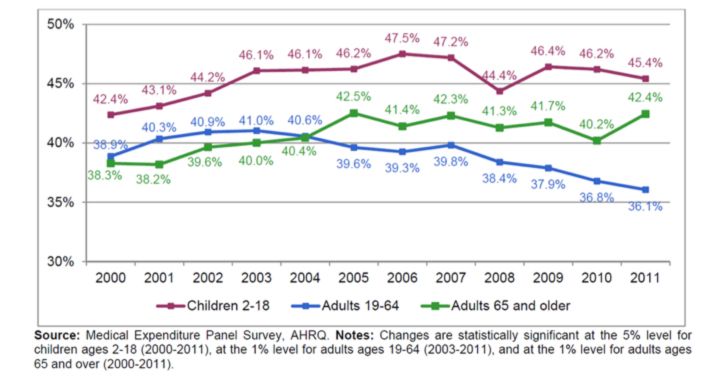The Modern Millennial Hygienist: Managing risks through revolutionary thinking
Dentistry is now serving four or more generations with two or three generations working in the practice. All of us are aging and, as we age, the real danger is thinking old. For dental hygiene professionals to succeed in the 21st century, it is essential to become a modern millennial hygienist (MMH). It is not age-based, it’s attitude-based. MMH challenges our brains to use higher level revolutionary thinking.
Dentistry is now serving four or more generations with two or three generations working in the practice. All of us are aging and, as we age, the real danger is thinking old. For dental hygiene professionals to succeed in the 21st century, it is essential to become a modern millennial hygienist (MMH). It is not age-based, it’s attitude-based. MMH challenges our brains to use higher level revolutionary thinking. Growth and change can warp-speed return on investment (ROI) and profitability for the practice AND the hygienist.
Horses, buggy whips, and trains
Railroads played a large role in the development of the United States. Trains were supreme at the same time as horses and buggies. In the early years of the 20th century with the advent of motor driven vehicles, it was quickly no place for slow-moving horses pulling flimsy carriages mixed in with cars, taxis, fire trucks, and buses. When trucks combined with the Interstate system, freight traffic for the trains became obsolete and changed the game.
SPEAKING OF THE PAST... Did this common weed have some great oral health benefits for our ancestors?
The dental hygiene game is also at the precipice of major change. Dental hygiene has very successfully taught the public the habit of coming in routinely. We taught the public to expect to hear about flossing almost to the extent where they hear us say it even when we don’t. The routines and habits of the past are comfortable. Expectations are met and that’s about it. Production stays the same. Insurance is easy to file.
In the 21stcentury, it makes little sense to think that the same routine care based on 40- to 50-year-old philosophies should remain the unchanged. In the 21st century, it makes sense to focus clinical energy on oral-systemic science. Thinking a prophy can remove infectious agents that contribute to stomach ulcers and to the overall inflammatory load need to shift. Orofacial myofunctional therapy may be an interesting add-on to the normal mix of procedures offered by the dental hygiene department. Patients want and expect more. When doing an oral cancer screening, they want information on their airway, tongue tie, skin tag, etc.
Just as the world of transportation changed, so has oral health care. The very horse we rode to get here may no longer serve. We certainly don’t use buggy whips like we used to, getting around requires a key not spurs.
21st century problem and your role with it: Spotting and preventing domestic abuse
A very bright future
Demographic studies are showing the population between ages 19-64 (the majority in most of our practices) is trending down in the number of visits (Figure 1, below). 21st century consumers are just saying “no,” affecting practice incomes. They are showing their dissatisfaction through their feet. They no longer value the routine care as they once might have. They see other ways and spend their time, energy, and money. New improved trends open up a world of possibilities for a modern millennial revolutionary thinking hygienist.
ADDITIONAL READING: The perio percentage KPI: How does your practice stack up?
Becoming a MMH
Practicing as a MMH means an attitude adjustment not changing a single product, procedure, technology, or technique. It may mean working outside of a clinical practice. It involves finances in ways many hygienists have previously not considered. There is no reason to invest the time, energy, and sweat-equity unless there is a warp speed return on investment for the patient, practice, AND the MMH. This series of articles will introduce the concepts of MMH. Next time, we will look at Five Downtime Activities to Make You an Indispensable MMH.
Figure 1: Percentage of the Population with a Dental Visit in the Year, 2000-2011

Listen below to the authors talk about this article
and the launch of this new series...
Editor's Note: Check Out Health Podcasts at Blog Talk Radio with
Cross Link Radio
on BlogTalkRadio
Author bios
Patti DiGangi, RDH, BS and Shirley Gutkowski RDH, BSDH are known for bringing their Midwestern sensibility to today’s health issues with an eye towards the future. With decades of experience in clinical dental hygiene, writing about it, speaking on it, and pondering over all aspects of it, Patti and Shirley challenge dental hygienists to reach higher levels of revolutionary thinking to meet 21st century patient needs, wants and expectations. Beware their infectious excitement, it can be catchy.
Patti is the author of the fast selling Dentalcodeology books and webinars and popular speaker. Shirley is the coach and primary cheerleader at CAREERfusion and the author of The Purple Guide series of books for dental hygienists.
ACTIVA BioACTIVE Bulk Flow Marks Pulpdent’s First Major Product Release in 4 Years
December 12th 2024Next-generation bulk-fill dental restorative raises the standard of care for bulk-fill procedures by providing natural remineralization support, while also overcoming current bulk-fill limitations.